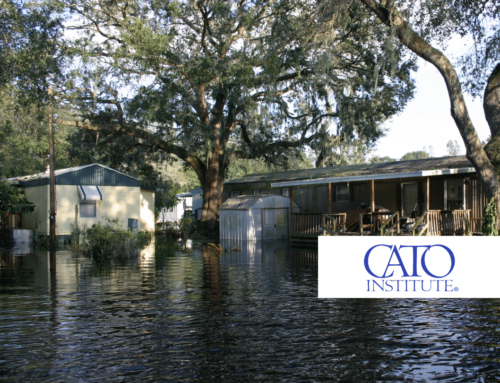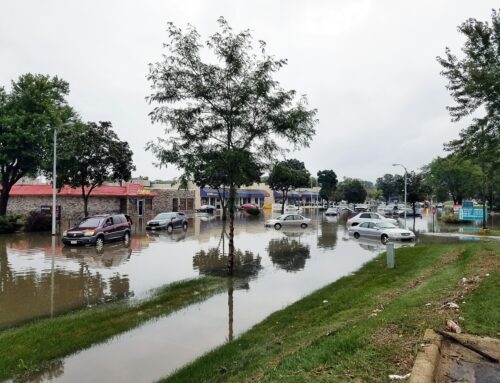Taxpayer alert: Be prepared to shell out some more cash for big water projects, courtesy of the U.S. Senate.
A few months ago, we wrote about the big U.S. Army Corps of Engineers water projects bill introduced in the Senate (Water Bill Redux Causing Acid Reflux May 20, 2016). Well, instead of spending the last few weeks of the fiscal year passing a single spending bill to fund the government, the Senate on Wednesday started debate on S. 2848, the Water Resources Development Act of 2016 (WRDA).
What a waste of time and money. We know because we read it.
The bill authorizes projects for the Corps to construct, more than $12 billion worth (federal share is north of $7 billion) of port deepenings, flood and storm damage reduction, and environmental restoration projects. Included are dozens of policy changes and more than a few parochial provisions.
The bill builds on policy changes from the last WRDA iteration in 2014—and that’s not a good thing. In both bills, there are many provisions encouraging non-federal sponsors of projects or studies (the towns, port authorities, or other groups benefitting from a project) to effectively lend money to the Corps to get the agency moving. And while such no-interest loans might seem like a good deal, they are borrowing from the future. Each provision indicates repayment of these loans would be subject to future appropriations. That’s a maneuver to get around Anti-Deficiency Act concerns (an agency can’t obligate the government to pay for something without an appropriation from Congress).
These provisions turn the whole idea of a federal program on its head. Instead of Congress or the Executive Branch dictating priorities, it will be special interests with the biggest pockets. There is even a provision exempting lock and dam projects that receive zero funding for 15 years from being cancelled. Another directs the Corps to use fuzzy math when evaluating the economics for a deepening of the Port of Iberia in New Iberia, LA. There’s also a provision that would absolve the Southeastern Power Administration from picking up half the cost of fixing seepage problems on dams in the Cumberland River Basin – taxpayers would be forced to bail out Southeastern.
Another provision would force the Corps to dredge every port along the Mississippi River to the authorized dimensions – whether it’s in use or not. The Congressional Budget Office estimates the dredging would cost taxpayers $275 million. The bill stipulates that the federal government would pick up 75 percent of the cost of deepening a port to 50 feet (previously, it was 75 percent up to 45 feet and 50 percent for deeper). CBO pegs the cost at $430 million, and the provision is retroactive.
One particularly troubling provision would change how the Corps does emergency repairs to levees and other flood or storm damage reduction structures after a disaster. Currently, the Corps uses emergency funds (not subject to Congressional appropriations) to rebuild a structure to the level or capacity prior to the disaster. If local communities want more, they must pay. S. 2848 changes that requirement and directs the Corps to rebuild to the “original design level or original capacity.” This is a big change because so many levees, beach projects or other structures aren’t anywhere near their original design level. The causes could be erosion or subsidence (such as sinkholes), land use changes or lack of maintenance. At some point, these changes will discourage maintenance because the feds will pick up 80 percent (for non-federally constructed projects) or 100 percent (for federally constructed projects) of the cost for getting a new project.
Most galling, Congress has failed to provide guidance and direction to the Corps on how to prioritize projects and spending. The metrics and criteria for a merit, competitive or formula-based prioritization process to guide taxpayer investments is not in the bill. The Corps provides a valuable service for the nation, but instead of developing a prioritization system for a myriad of projects, the Senate produced a bill with a hodge-podge of costly and parochial provisions. Taxpayers cannot afford this bill.











Get Social